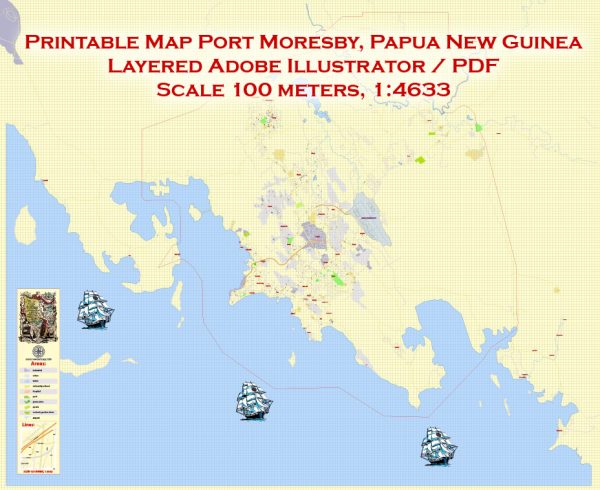Port Moresby is the capital city of Papua New Guinea, and it holds a rich history that spans thousands of years. Here is a brief description of the history of Port Moresby:
- Indigenous Inhabitants: The area around what is now Port Moresby has been inhabited for thousands of years by various indigenous communities, including the Motu-Koitabu people. These indigenous groups had their own distinct languages, cultures, and traditions.
- European Exploration: European explorers, including the Dutch and British, arrived in the region in the 17th century, but it wasn’t until the late 19th century that formal colonial influence took root. In 1873, British Admiral Sir John Moresby landed in the area, giving it its current name. The British and Germans divided the territory, with the British eventually establishing control over what would become Papua New Guinea.
- Colonial Era: The British-controlled portion of Papua New Guinea, including Port Moresby, was administered as a British colony, while the German-controlled portion (New Guinea) was managed by Germany. During World War I, Australian forces took control of the German territories, and after the war, Australia assumed administrative authority over the entire region.
- World War II: Port Moresby played a significant role in World War II, serving as a key strategic location in the Pacific Theater. It was the target of Japanese air raids and was instrumental in stopping the Japanese advance toward Australia. The Battle of the Coral Sea (1942) was a pivotal moment in the defense of Port Moresby and the surrounding area.
- Independence: Papua New Guinea gained independence from Australia on September 16, 1975. Port Moresby became the capital of the newly independent nation. The city has since served as the center of government, commerce, and culture in Papua New Guinea.
- Modern Port Moresby: Today, Port Moresby is a bustling city with a mix of modern development and traditional influences. It is known for its diverse population and serves as the economic and administrative center of the country. The city is home to government institutions, international embassies, and a growing urban population.
- Challenges: Despite its role as the capital and economic hub, Port Moresby faces challenges such as urbanization, poverty, and crime. The city’s development is ongoing, with efforts to improve infrastructure, services, and living conditions for its residents.
The history of Port Moresby is a complex narrative of indigenous cultures, colonial rule, wartime significance, and the struggle for independence. It is an integral part of the broader history of Papua New Guinea, a nation with a diverse and vibrant cultural heritage.


 Author: Kirill Shrayber, Ph.D. FRGS
Author: Kirill Shrayber, Ph.D. FRGS